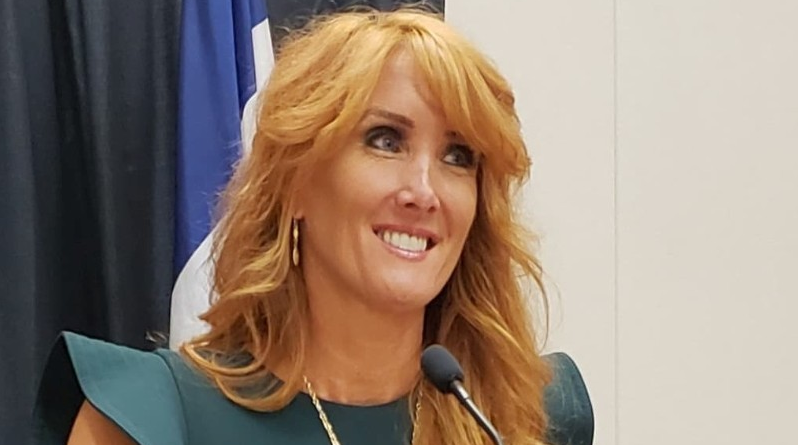Rebecca Kiessling always wanted to know who her biological parents were.
Adopted as an infant, she told the New Yorker that she used a spiral-bound notebook to count down “the years, months and days” until she turned 18 and could request legal documents about them.
In 1987 when she saw those documents, the Michigan lawyer and pro-life advocate soon realized something was wrong with the description of her biological father. To her shock, Kiessling later learned that her birth mother, Joann, had been raped at knife-point on the way to the grocery store one day and conceived her, according to the interview.
Today, Kiessling shares her story across the U.S. to help society recognize the value of every unborn child, including in the “hard cases” like rape. As an attorney, she also advocates for mothers who are victims of rape.
“Child sacrifice was going on since the days of antiquity,” she told the New Yorker. “There’s always been a battle for life. It’s gone on for thousands of years, and I think it’s never gonna end.”
Now that the U.S. Supreme Court has overturned Roe v. Wade, however, she has renewed hope. She said: “I think it’ll be hard to deny this whole generation of children who will be born. You can’t deny a person’s life. Their story.”
Kiessling works in numerous ways to help both mothers and unborn children who are victims of rape. Compelled by her own history, she said her birth mother almost aborted her twice before putting her up for adoption.
REACH PRO-LIFE PEOPLE WORLDWIDE! Advertise with LifeNews to reach hundreds of thousands of pro-life readers every week. Contact us today.
“It’s an act of desperation, and a sign that we, as a society, have failed her,” she said of women who abort their unborn babies.
Instead, Kiessling said society should be offering these hurting families a “multitude of solutions,” including material and emotional support. Through her law practice and her pro-life organization Save the 1, she does many of these things already.
According to the interview, she runs an online private support group for mothers of children conceived in rape. She also is a legal advocate for women fighting custody battles with their alleged rapists, and supports legislation to make it harder for alleged rapists to receive custody of their children.
Here’s more from the report:
In 2017, Kiessling made headlines representing a Michigan mother named Tiffany Gordon, who’d become pregnant at the age of twelve when an older friend of a friend abducted and raped her. Gordon decided to go through with the pregnancy and gave birth to a son. … When Gordon’s son was eight, she applied for public assistance, which, under federal law, triggers a routine effort to track down the father for child support. … [A] county judge ordered her to share custody with her rapist and to move within a hundred miles of his address. Kiessling, who took on the case pro bono, filed a motion to challenge the court’s decision, drumming up media attention with a rally and a petition that collected more than a hundred thousand signatures. The judge reversed his ruling, claiming that he hadn’t been made aware of the circumstances surrounding the child’s birth.
Kiessling also testifies in front of state legislatures, urging lawmakers to include babies conceived in rape in laws that protect unborn babies from abortion. She does high-profile news interviews, too, telling her story to advocate for human rights for all human beings.
Recently on CNN, she appeared with pro-abortion lawyer Gloria Allred who spoke about having a back-alley abortion before Roe. Kiessling responded by expressing sorrow for Allred’s “son or daughter,” and then urged the woman to consider: “You may not think that their life matters, but you know what? That matters to me.”
Although many Americans support legalized abortion in cases of rape, Kiessling said she will not give up working to change minds. Children like herself are not just “hard cases,” she said. They are valuable human beings.








